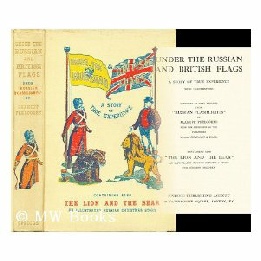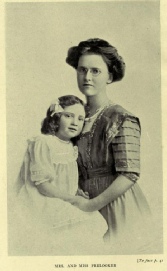Friends of Hastings Cemetery

Jaakoff Prelooker continued
In 1891, he chose to exile himself to Britain. “They have interdicted my lectures on the banks of the Neva, but I will deliver them on the free banks of the Thames!” In this country of his fondest poetical dreams Prelooker landed in August 1891 with a fortune of a little over two pounds in his pocket. "This was in March 1891, and I have since carried out my decision, not, I venture to think, without the sincere appreciation of the British public and Press.”
Gradually the idea dawned upon him of the necessity of preaching a reconciliation between Jew and Christian, an idea which in later years, with the further studies of Mohammedanism, Brahminism, Buddhism, and other religions, ripened into a conception of the oneness of the
origin and ultimate aim of all religious creeds.
He encouraged what was a growing vogue for Russian study by setting up a Russian language institute and a Russian reading circle [Carol Peaker, ‘We are not Barbarians: Literature and the Russian Émigré Press in England, 1890–1905’ 19: Interdisciplinary Studies in the Long Nineteenth Century, 3 (2006)
Premises were taken for the new Institute in the best part of Upper Norwood, London, and as several London papers gave editorially the new enterprise wide publicity, inquiries began to arrive, especially from military officers intending to take up Russian for their examinations. But the Boer War took away a large number of British officers. There was not a sufficient demand for Russian from other classes to justify the existence of the Institute and it was closed down, although Prelooker believed that it would have succeeded if he had possessed the means to carry it on for a couple of years.
At the end of 1902 Sir H. Beerbohm Tree decided to run a dramatized version of Tolstoy's Resurrection and he approached Prelooker to identify a native Russian choir. His enquiries revealed that to bring a choir from Russia would have proved a very costly affair, so he found Russian singers in England, and in a short time organized them into such a good choir, that it formed one of the chief attractions of the play according to the Press.
In 1905 Prelooker married an Englishwoman, Miss Ethel Thorpe, daughter of the late Mr. and Mrs. William Thorpe of Trosley, Kent. After the birth of a daughter, Miriam, family moved to Ifield, near Crawley, Sussex. After their move to Hastings Mrs. Prelooker, in 1932 -
